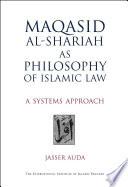Documents on Practice from the Ottoman Archives
“Islamic law contains explications and divisions that imply a classification in terms of public and private law. In this book we will explain the outlines of Islamic public law, e.g. First Chapter; Islamic constitutional law (al-siyāsah al-shar‘iyyah) and administrative law (al-siyāsah al-shar‘iyyah); Second Chapter; penal law (al-̒uqūbāt); Third Chapter; financial law (zakāt, ʻushr, ḫarāj and other taxes); Fourth Chapter; trial law (qaḍā), and Fifth Chapter: international public law (al-siyar). The fields of especially Islamic constitutional law, administrative law, financial law, ta‘zīr penalties, and arrangements concerning military law based on the restricted legislative authority vested by Sharī‘ah rules and those jurisprudential decrees based on secondary sources like customs and traditions and the public good (maslahah) all fell under what was variously called public law, al-siyāsah al-shar‘iyyah (Sharī‘ah policy), qānūn (legal code), qānūnnāmah, ‘orfī ḥuqūq etc. Since these laws could not go beyond Sharī‘ah principles either, at least in theory, they should not be regarded as a legal system outside of Islamic law. But Islamic penal law, financial law, trial law, and international law depend mostly on rules that are based directly on the Qur’an and the Sunnah and codified in books of fiqh (Islamic law) called Sharī‘ah rules, Sharʻ-i sharīf, or Sharī‘ah law. Such rules formed 85% of the legal system. In this book, we will focus on some controversial problems in the Muslim world today, such as the form of government in Islamic law and the relation between Islam and democracy. Islamic law does not stipulate a certain method of state government; nonetheless, we may say that the principles it decrees and its concept of sovereignty suggest a religious republic. As a matter of fact, Ḫulafā al-Rāshidūn (the Rightly Guided Caliphs), were both caliphs and religious republican presidents. We could say that this book has three main characteristics. i) We have tried to base our explanations directly on the primary Islamic law sources. For example, after reading some articles on the caliphate or tīmār system in articles or books by some Western scholars and even by some Muslim scholars, one might conclude that there are different views on these subjects among Muslim scholars. This is not true: Muslisms have agreed on the basic rules on legal subjects, but there are some conflicts regarding nuances and interpretations. If one reads works by Imām Gazzali, Ibn Taymiyyah, al-Māwardi, and al-Farrā’, one will not find any disagreement on the main rules, but there are some different interpretations of some concepts. We have tried to discover where they agreed and we have sometimes pointed to where they differed. ii) We have researched practices of Islamic law, especially legal documents in the Ottoman archives. For example, we explain ḥadd-i sariqa but also mention some legal articles from the Ottoman legal codes (qānunnāmes) and some Sharī‘ah court decisions like legal decrees (i‘lāmāt-i shar‘iyyah). It is well known that nobody can understand any legal system without implementing and practicing it. That also holds for Islamic law because theory alone does not yield a complete understanding of Sharī‘ah rules. iii) We have worked hard to correct some misconceptions and misunderstandings about Islamic law. That is why we appeal to the primary sources. For example, some scholars claim that the Ḥanafī jurist Imām Saraḫsī did not accept the idea of punishment for apostasy. We have studied his work al-Mabsūt and found this claim to be unfounded. The comparison between tīmār and fief is another example because the tīmār system is different from the fief system. Some scholars confuse the concept of sovereignty and governance. The Islamic state is not a theocratic state in the sense in which Europeans understand the term.”
In this book we will explain the outlines of Islamic public law, e.g. Islamic
constitutional law (aI-siydsah aI-shar'iyyah), administrative law (aI-siydsah aI-
shar'iyyah), penal law (alluqubdt), financial law [zakdt 'ushr, hard] and other taxes
), trial law ...










